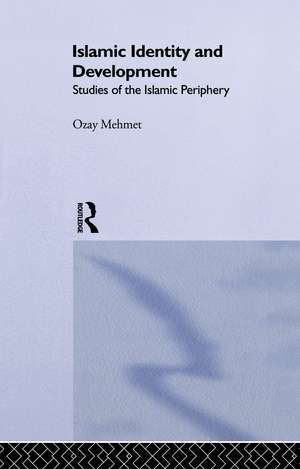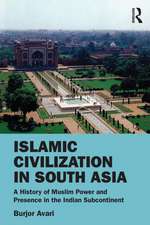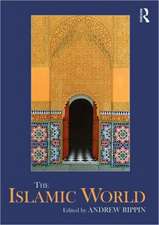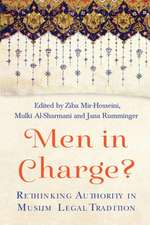Islamic Identity and Development: Studies of the Islamic Periphery
Autor Ozay Mehmeten Limba Engleză Paperback – 24 apr 2014
In Islamic Identity and Development, Ozay Mehmet examines this identity crisis in the wider context of the Islamic dilemma of reconciling nationalism with Islam. He sees the Islamic revival primarily as a protest movement, concentrated among urban migrant settlements where uneven post-war growth has upset the traditional Islamic order. He argues that Islamic societies must move towards greater openness and an organic relationship between rulers and ruled. In particular, Mehmet suggests the need for a public policy that is not only responsive to material human needs but which also satisfies the ethical preconditions of the Islamic social contract.
| Toate formatele și edițiile | Preț | Express |
|---|---|---|
| Paperback (1) | 410.50 lei 6-8 săpt. | |
| Taylor & Francis – 24 apr 2014 | 410.50 lei 6-8 săpt. | |
| Hardback (1) | 1111.55 lei 6-8 săpt. | |
| Taylor & Francis – 2 aug 1990 | 1111.55 lei 6-8 săpt. |
Preț: 410.50 lei
Nou
Puncte Express: 616
Preț estimativ în valută:
78.56€ • 81.71$ • 64.85£
78.56€ • 81.71$ • 64.85£
Carte tipărită la comandă
Livrare economică 14-28 aprilie
Preluare comenzi: 021 569.72.76
Specificații
ISBN-13: 9780415755405
ISBN-10: 0415755409
Pagini: 272
Dimensiuni: 138 x 216 mm
Greutate: 0.32 kg
Ediția:1
Editura: Taylor & Francis
Colecția Routledge
Locul publicării:Oxford, United Kingdom
ISBN-10: 0415755409
Pagini: 272
Dimensiuni: 138 x 216 mm
Greutate: 0.32 kg
Ediția:1
Editura: Taylor & Francis
Colecția Routledge
Locul publicării:Oxford, United Kingdom
Recenzii
`The book contains scores of interesting observations, drawn from a wide variety of sources... And it offers an eclectic mix of policy recommendations, all worthy of discussion.' - International Journal of Middle East Studies
Cuprins
Introduction; Part 1 The Islamic identity crisis; Chapter 1 Identity crisis in the Islamic Periphery; Part 2 The Islamic dilemma; Chapter 2 Islamic underdevelopment; Chapter 3 The Islamic social contract; Chapter 4 Islam and economic development; Part 3 Development in the Islamic Periphery; Chapter 5 Nationalism confronts Islam; Chapter 6 Turkish etatism; Chapter 7 Malaysian development by trusteeship; Part 4 Development in the Islamic Periphery; Chapter 8 Islam, the modern state and imperfect competition; Chapter 9 Privatizing the Malaysian economy; Chapter 10 Privatizing the Turkish economy; Part 5 Conclusion; Chapter 11 Responsible development in the Islamic Periphery;
Descriere
Focusing on Turkey and Malaysia, this book examines the problems of identity experienced in these countries because of their position on the Islamic periphery.















